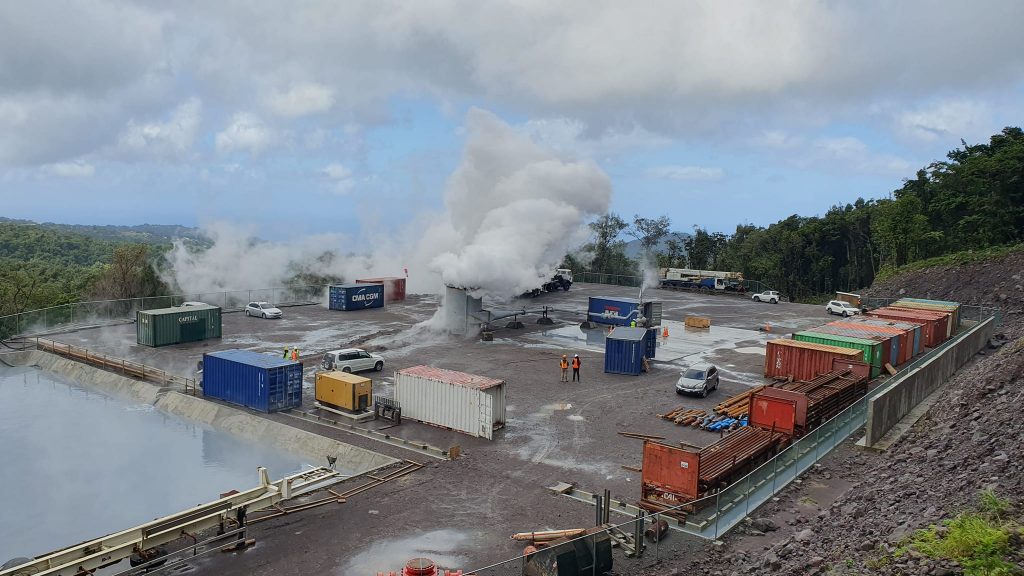 Flow testing of a production well at the site of the Dominica geothermal project in Laudat. (source: Dr. Vince Henderson via Facebook)
Flow testing of a production well at the site of the Dominica geothermal project in Laudat. (source: Dr. Vince Henderson via Facebook)Additional investment is needed
Prime Minister Roosevelt Skerrit said that the government has provided nearly half of the ECD 150 million (approx. USD 55 million) that has been spent on the project so far. This has covered the drilling and testing of the wells, and the design and development of the power plant.
As Dr. Vince Henderson, Minister for Foreign Affairs, International Business, Trade, and Energy, pointed out, all that remains is the construction of the power plant. He expects the additional investment for this to be around USD 60 million.
Dr. Henderson further revealed that the government already has a partner that can help with financing, but that they are still seeking to mobilize other partners for concessional financing. The goal is to make sure that the communities in Dominica get the lowest possible tariff for the electricity to be generated by the power plant.
“We have also brought the partners in to hear about the second part of the project, which is the construction of the transmission lines/ transmission system moving from Laudat to Fond Cole,” Dr. Henderson noted.
A grueling but worthwhile process
PM Skerrit described the process of developing a geothermal project as grueling, but that they stuck with it they are “convinced the long-term benefits far outweigh the downsides.” He added that one of the takeaways is that renewable energy development combined with the challenges of small island infrastructure and topography is not for the faint of heart.
Skerrit said that when the geothermal project becomes operational, it will lower the cost of doing business in Dominica and thus attract more foreign direct investment. “We have the scars to show for this, but we have kept our eyes on the prize of reduced electricity costs for all citizens; the ability to generate 100 per cent of our electricity from renewable sources and the prospect of a new source of revenue for the state from the sale of excess energy to our neighbour.”
“Consider the roadblocks to our progress which have come in the form of a pandemic, successive storms and hurricanes, geopolitical upheavals and procurement challenges. It is also not easy being the first…a pioneer of sorts in our region.” concluded Skerrit.